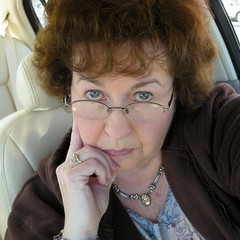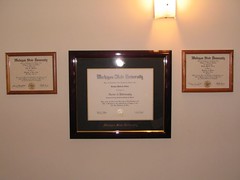Last week, I confessed that I actually enjoyed several books I read in high school. As you might suspect, I liked some of my college reads, too.
But there’s also a confession in here: although I minored in English (and like literature), I took one literature class in my entire college career. I had to read for every class, but not a whole lot of those reading lists included novels.

|  |
| Absalom, Absalom! by William Faulkner | The Age of Innocence by Edith Wharton |
| Definitely a complex text, but I liked how it felt. (How else does one understand Faulkner?) | Who doesn’t love a tragedy about a man who lets his social inhibitions rule his life? Oh. Just me. |
 |
 |
| The Crucible by Arthur Miller | Native Son by Richard Wright |
| I’d already seen the movie and the play by the time I read the text, so it was most interesting to compare the interpretations—but everyone loves a good witch hunt! | Riveting, raw and so so real. I found this much more moving and accessible than similar works I’ve read. |
(Can I just take a minute to criticize some of these cover designs? I mean, what the heck is that supposed to be on The Age of Innocence? You can’t read the back cover copy so you slap on some painting of something?? Is The Crucible supposed to be set in Amish country??)
Some of the nonfiction I liked included Jefferson Davis, American by William J. Cooper, Jr., and The Slave Community: Plantation Life in the Antebellum South by John Blassingame. Hm . . . these six books were actually for only two classes, the American Novel 1914-1960 and History of the American South. I wonder which came first: liking the class or liking the texts?
What do you think? What did you read in college that stuck with you? What are you reading now?



 From what I understand (as I was told by professors), nearly all MFA programs create a certain type of writer—a literary one. Though I would like to style myself as a literary writer, right now my passions lie in genre fiction, and rare is the program where genre fiction (from romance and mystery to YA to scifi) is not at least stigmatized, if not denigrated. And leaving aside the fact that literary fiction is difficult to write and harder to sell, by no means does an MFA guarantee publication—or even publishable writing.
From what I understand (as I was told by professors), nearly all MFA programs create a certain type of writer—a literary one. Though I would like to style myself as a literary writer, right now my passions lie in genre fiction, and rare is the program where genre fiction (from romance and mystery to YA to scifi) is not at least stigmatized, if not denigrated. And leaving aside the fact that literary fiction is difficult to write and harder to sell, by no means does an MFA guarantee publication—or even publishable writing.